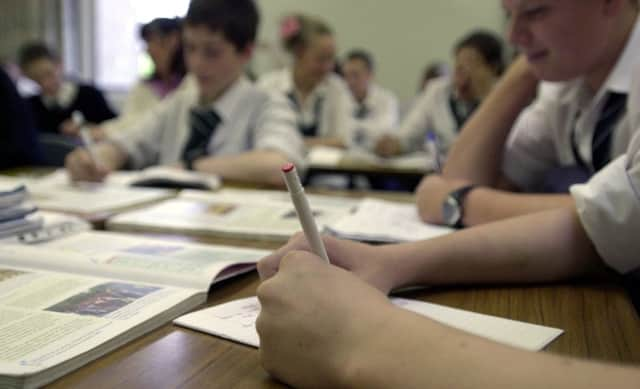Majority of education health and care plans deadlines were missed for post 16 SEN students in Yorkshire


Education health and care (EHC) plans to support young people with SEN to stay in education after they turn 16 were supposed to be in place by the end of March this year.
However, figures obtained by a solicitors firm have revealed that in 791 cases in Yorkshire this plan was not in place by the deadline. Imogen Jolley , the head of education at Simpson Millar solicitors, said the figures represented “a systemic problem which is affecting young people with special educational needs at a crucial time in their education.”
Advertisement
Hide AdAdvertisement
Hide Ad“This clearly indicates a widespread lack of resources to meet a deadline which is both legal and essential,” she said.
However, councils have defended their work to ensure young people with SEN are supported.
Figures show that in Kirklees 200 out of 222 young people who needed an EHC plan for transitioning to college did not have one. In Rotherham an EHC plan was not in place in 99 out of 113 cases. In Bradford of the 89 students who needed an EHC plan 33 were in place by the deadline and in the East Riding of 72 who needed one 25 were in place.
In North Yorkshire 44 of the 80 students who needed an EHC plan had one in place.
Advertisement
Hide AdAdvertisement
Hide AdElsewhere the vast majority of young people did have a plan in place by the deadline. In Hull 67 of the 74 students had an EHC plan in place, in Calderdale 27 of the 40 students had a plan ready and in York 30 of 45 students did.
In Leeds of the 111 students identified as needing a plan 76 had one by the end of March.
In Sheffield 104 of the 154 students who needed an EHC plan had one in place by the deadline. The council said it was working on outstanding plans to ensure all young people requesting a post-16 placement in September have one agreed.
In Wakefield of the 146 identified as needing an EHC plan only 26 had one in place.
Advertisement
Hide AdAdvertisement
Hide AdHowever John Wilson, the council’s corporate director for children and young people said that of those it was found that 33 did not need an EHC plan and another 50 were clear that they were continuing in their current special school.
He said: “Of the remaining 63 young people, all will have a place on a suitable course, including a small number of young people who, as yet, have not informed us of their decision regarding college placements.”
“In Wakefield we believe it is of vital importance that Education Health and Care Plans are of a high quality and reflect what young people wish to achieve in their post 16 education.
“This is to ensure we understand each person’s needs and future aspirations and these match with the college they wish to attend,” he added.
Advertisement
Hide AdAdvertisement
Hide AdA Kirklees Council spokeswoman said: “We have worked with families and colleges to ensure that young people are able to start their post-16 placement on time, even if there have been delays in dealing with their plan.
“A number of councils have experienced delays in this process as a new system has come into effect nationally, but we do acknowledge there have been issues in Kirklees. We are already working to put this right so that more plans will completed on time in the future.” She said they had kept families up to date to reassure them.
A North Yorkshire County Council spokeswoman said: “We have worked closely with young people, parents, carers and colleges and other educational settings both before and after the March 31 deadline to put in place EHC plans to allow young people to move from secondary school to a post-16 setting. We are confident that all the young people will have a place that meets their needs in September.”
Coun Megan Swift, Calderdale Council’s cabinet member for children and Young People’s Services, said: “When creating EHC plans we work very closely with families, schools and colleges, providing support and advice and taking time to understand exactly what the young people’s needs are so we can ensure they reach their full potential.
Advertisement
Hide AdAdvertisement
Hide Ad“This intensive partnership work, plus the need for our small team to transfer about 1,000 statements of special educational need into EHC plans due to a change in legislation, means that we didn’t complete as many plans before the deadline as we would have liked.”
Caroline Rowley, the Yorkshire regional director for the Association of Colleges said: “In creating a new coherent system of support for young people with SEN partnerships with local authorities and other agencies have become increasingly important.
“There have been occasional reports of difficulties in creating and accessing EHC plans and in working with local authorities. Where this has occurred, AoC and colleges are working with DfE to make sure the system works well for young people and parents.”
She said the AoC and the Local Government Association were going to publish a joint best practice guide for colleges and councils.